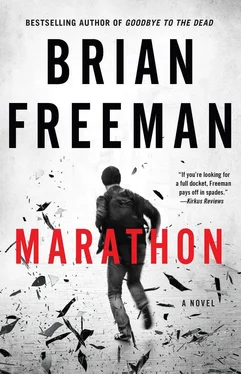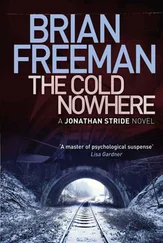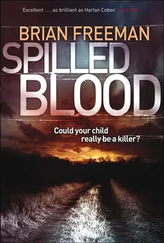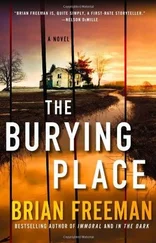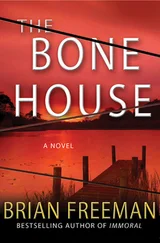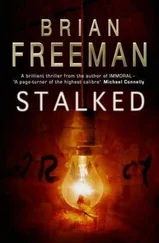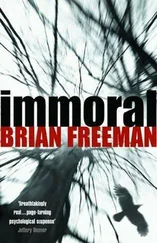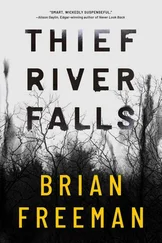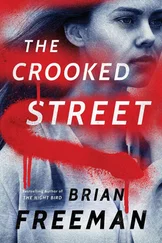Times of heroism are generally times of terror.
— RALPH WALDO EMERSON
The backpack is proudly made in the USA.
It is constructed of tough navy-blue canvas to stand up to the Minnesota ice and snow. It’s the kind of bag you can take with you wherever you go: to college, the office, or into the wilderness. In an outdoors-loving city like Duluth, hundreds of people carry the same backpack.
From the outside, this backpack looks like all the others.
From the outside, you cannot see the fifty pounds of metal, shrapnel, black powder, and wires contained within.
From the outside, you cannot see hatred, but that is what the backpack actually holds.
At 12:32 p.m. on the third Saturday in June — marathon day — the contents of the navy-blue backpack will receive their awakening signal. The signal will come via radio waves and be transmitted to a cell phone taped to the handle of the eight-quart pressure cooker within.
Everything that happens next will take no more than a millisecond. Once started, the process cannot be stopped. It is basic physics.
The cell phone sends an electrical impulse to a blasting cap.
The blasting cap, wired through the lid of the pressure cooker to the supply of black powder, triggers an explosive reaction.
The gases of the explosion expand under pressure until their outward force exceeds the structural integrity of the pressure cooker.
The pressure cooker shatters.
Thousands of ball bearings and nails launch with the speed and force of bullets shot from a gun. They will maim or kill anyone in their path. In that millisecond, lives will change.
You cannot stop physics.
You can only stop hatred.
Jonathan Stride watched dozens of runners emerge from the Lake Avenue overpass and make the last turn on the way to the finish line in Canal Park. Sweet victory was in sight.
The rain, which had dogged the course all morning, didn’t stop the athletes. The rigors of traveling twenty-six miles by foot in just a few hours didn’t stop them. They came, one after another, dressed in neon colors, crossing under balloon rainbows that decorated the last two-tenths of a mile. Stride knew that the final, short stretch of pavement could feel as long as all the miles that had come before. Some runners smiled. Some cried. Some had beet-red faces twisted in pain. Some looked lost, their eyes wide, as if they could barely contemplate what this physical accomplishment meant to them. Regardless of their condition, completing the marathon was a moment they would remember all their lives.
More than two hours had passed since the leaders — a cadre of amazing Kenyan athletes — sprinted across the finish line as if the race were no more than a hundred-yard dash. Because of the weather, no one had set a record today, but Stride admired anyone who took on the entire distance from the small town of Two Harbors to the city of Duluth, with the shore of Lake Superior in view along the way.
Next to him, Cat Mateo consulted her phone. “According to the tracking app, Serena should be here any minute now. This is so cool! She did it!”
Cat put two fingers into her mouth and produced a shrill whistle. She raised a red cowbell over her head and clanged it for the runners. So did a hundred other spectators crowded beside them, huddled under slickers and umbrellas. Rain didn’t stop the cheering section, either. On every marathon day, regardless of the weather, the people of Duluth poured into the streets to show their love for the runners. It didn’t matter if someone finished first or five thousandth or limped across the line six hours after starting. They all were treated like winners.
Stride was pleased to see joy in Cat’s face as she watched the race. The seventeen-year-old had battled melancholy as long as he’d known her. Fifteen months earlier, he and Serena had rescued Cat, who was pregnant and undernourished at the time, from a life on the streets, and she’d lived with them ever since. It had been a rocky road for all of them. Today, though, none of that mattered. Today, she was happy. Stride put an arm around the girl, and she leaned her head into his shoulder.
Near them, two teenage boys eyed the beautiful girl and murmured, “Wow,” and Stride had to resist an impulse to knock their heads together. He felt like a father to Cat, which was a responsibility that he’d never expected as he turned fifty years old.
While the crowd watched the runners, Stride watched the faces in the crowd. The spectators pushed ten deep against metal barriers that blocked off the street. Drizzle spat on their hoodies and hats from a charcoal sky. It was a chilly morning if you weren’t running, but these were Duluthians, and most wore shorts despite the cold. They were young and old, laughing, cheering, sipping hot coffee, and dancing to Eagles and Steely Dan songs blasting out of loudspeakers.
This was always one of Duluth’s best days. Since the first race decades earlier, the Duluth Marathon had grown from a local event for a handful of die-hard runners to a Minnesota institution drawing tens of thousands of athletes and visitors from more than forty countries. The North Shore route, steps from the Great Lake and cutting through miles of wilderness, was probably the most beautiful marathon course in the country.
Every year, Stride relished the excitement of the event, but he was also a lieutenant in the Duluth Police, and he felt the tiniest unease seeing so many people crowded together in such a small area. Crowds were vulnerable, and after the Boston Marathon attack, they’d learned that the threat of violence lurked wherever people gathered. That was why they had a black tactical van parked at the entrance to Canal Park, along with bomb-sniffing dogs and armed officers patrolling the street. That was why he and his team watched individual faces, looking for something in a person’s eyes that shouldn’t be there.
Hatred. Calculation. Evil.
He was taking no chances today. Duluth had been an uneasy place this spring. An activist named Dawn Basch had taken up residence in the city in preparation for a so-called free-speech convention. Basch called it a defense of First Amendment rights; her opponents called it a thinly veiled assault on Muslims. The resulting protests had divided the Northland, and social media was lit up with bitterness and finger-pointing. Everyone was angry, and anger had a way of spiraling out of control. He didn’t like having the marathon take place in the midst of the city’s worst unrest in years.
Stride brushed rainwater out of his wavy black-and-gray hair, which he kept shorter than he had in his younger days. He was a tall man, nearly six-foot-two, with a weathered face and intense dark eyes. He’d crossed the half-century mark a few months earlier. His friend and doctor, Steve Garske, had told him he’d quickly a notice a difference between his fifties and forties, and Steve was right. Whenever Stride rolled out of bed in the morning, his body felt knotted together, and it took a hot shower and a pot of coffee before he was loose and ready to face the day.
He wasn’t young anymore, but as far as he was concerned, youth was overrated. He’d known loss and recovered from it. He’d made mistakes and learned to live with them. Imperfection had made him who he was. It had taken most of his fifty years to learn that lesson, and for the first time in a long time, he wouldn’t trade the present for the past.
Читать дальше
